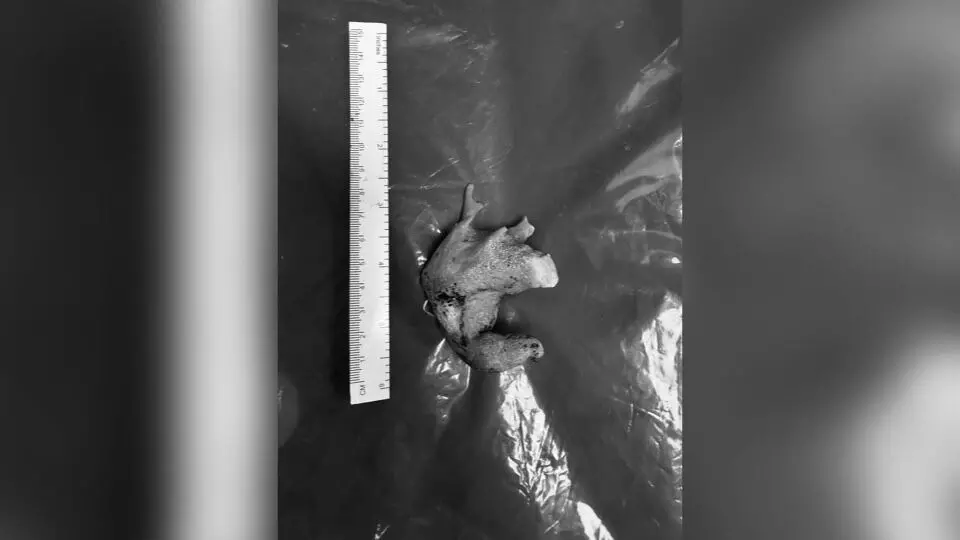Visakhapatnam: AINU doctors remove kidney stone filling entire organ in farmer
Staghorn stones form due to the crystallisation of minerals and they develop over a long period
By Newsmeter Network
Visakhapatnam: An extremely rare and severe case of kidney stone formation was found in a 62-year-old patient in Visakhapatnam. While kidney stones are typically small, in this case, a large staghorn stone occupying the entire kidney was detected. The stone was successfully removed by the doctors at AINU, Visakhapatnam.
What are staghorn kidney stones?
Staghorn stones form due to the crystallisation of minerals and they develop over a long period. Since these stones take the shape of the kidney without obstructing the urine flow the patients have no symptoms and are usually present late leading to a delay in detection and treatment.
Consultant urologist Dr Amit Saple provided details of this rare treatment.
The 62-year-old patient, a farmer by occupation, came to AINU (Asian Institute of Nephrology and Urology) hospital in Visakhapatnam with complaints of occasional pain in the back towards the left side. On ultrasound and CT scans, the large staghorn stone was discovered in the kidney. The patient’s kidney function was also severely compromised, operating at just 18 per cent, explained Dr Amit Saple.
Stone removed through a minimum invasive technique
In traditional cases, these stones are either removed by making a puncture in the kidney and breaking the stone internally or through an open surgery where the stone is removed by making an incision on the kidney.
“In this case, we used a procedure called laparoscopic pyelolithotomy, where we accessed the stone from the front of the abdomen laparoscopically instead of through the kidney. This minimally invasive technique allowed us to remove the entire stone without breaking it, including all its extensions,” explained Dr Amit Saple.
Previously, such surgeries were performed using open surgery methods, but advancements in medical technology have made laparoscopic procedures possible, reducing recovery time and potential complications.
The surgery was completed by placing a stent to facilitate proper urine flow, which will be removed after one month. The patient experienced no complications post-surgery and was discharged on the second day, showcasing the effectiveness and efficiency of the treatment approach.
The AINU Visakhapatnam medical team which includes urologists Dr Amit Saple, Dr Ravindra Varma, Dr Sridhar and anaesthetist Dr Shyam played a crucial role in this successful operation, demonstrating advanced technical skills in managing this rare and challenging case.